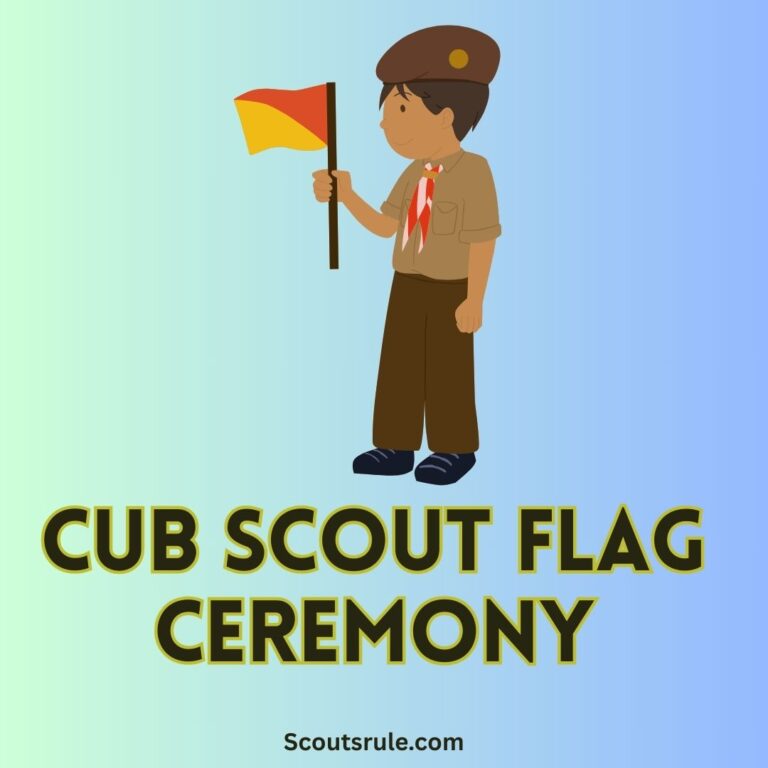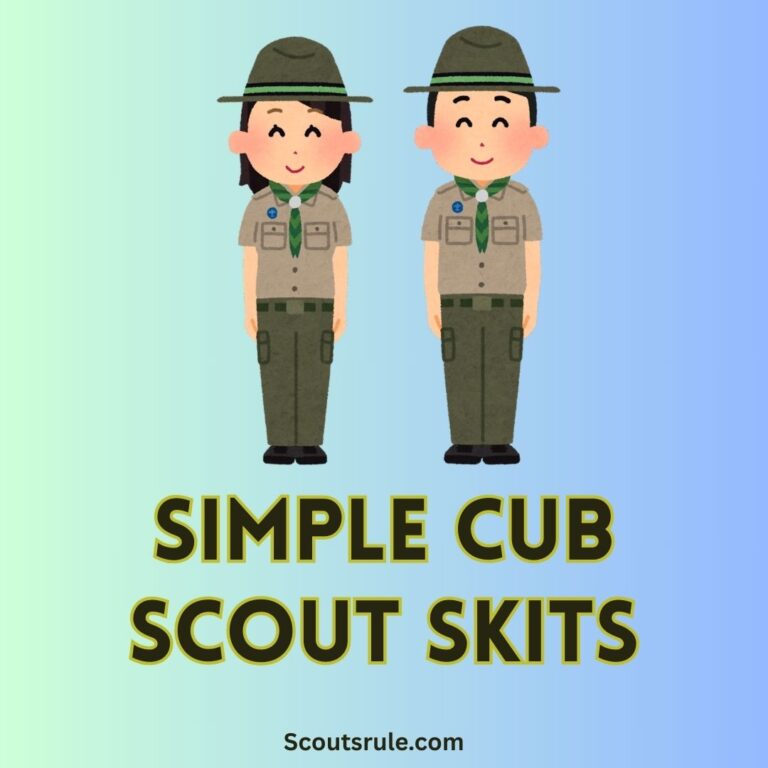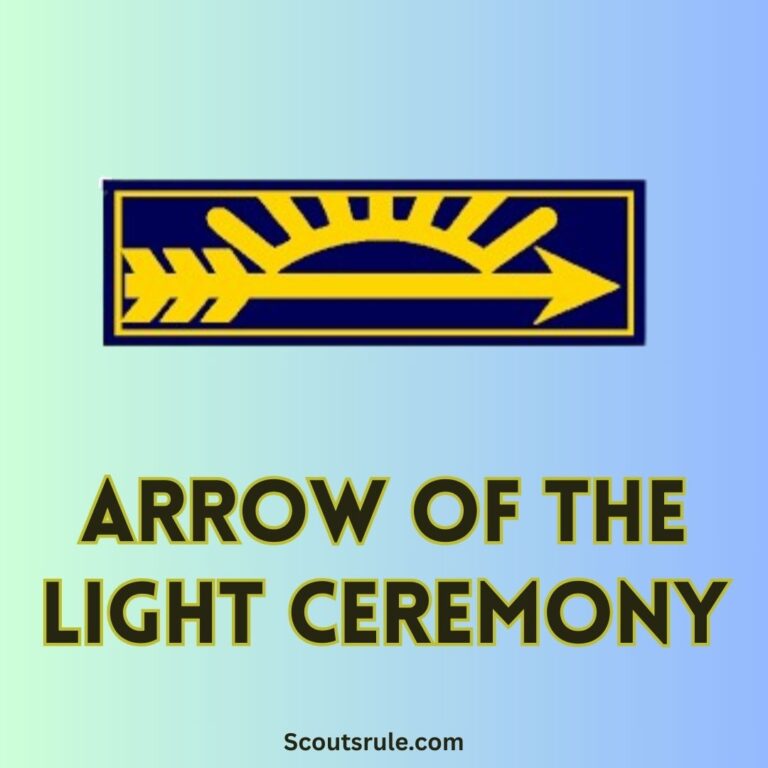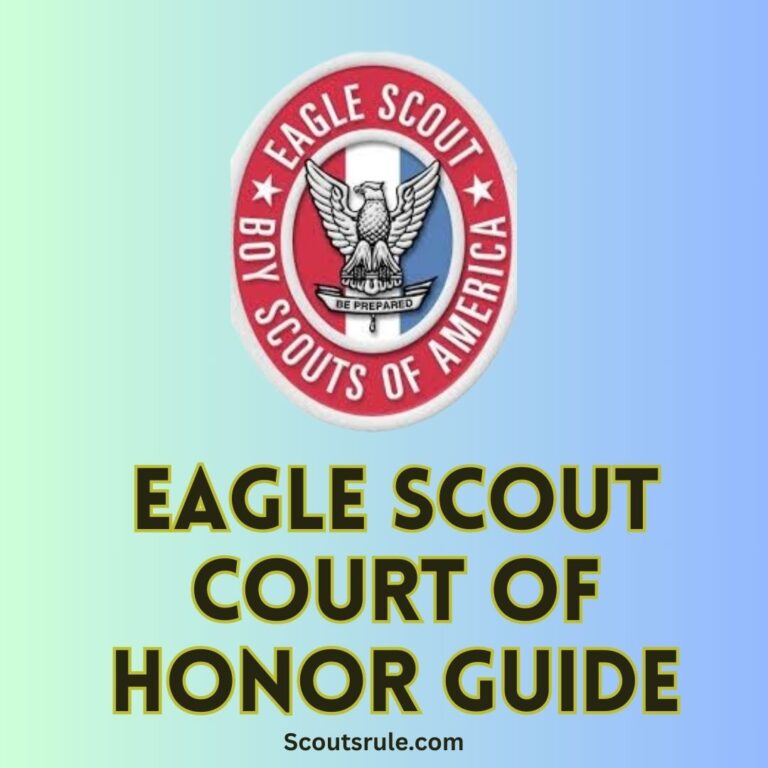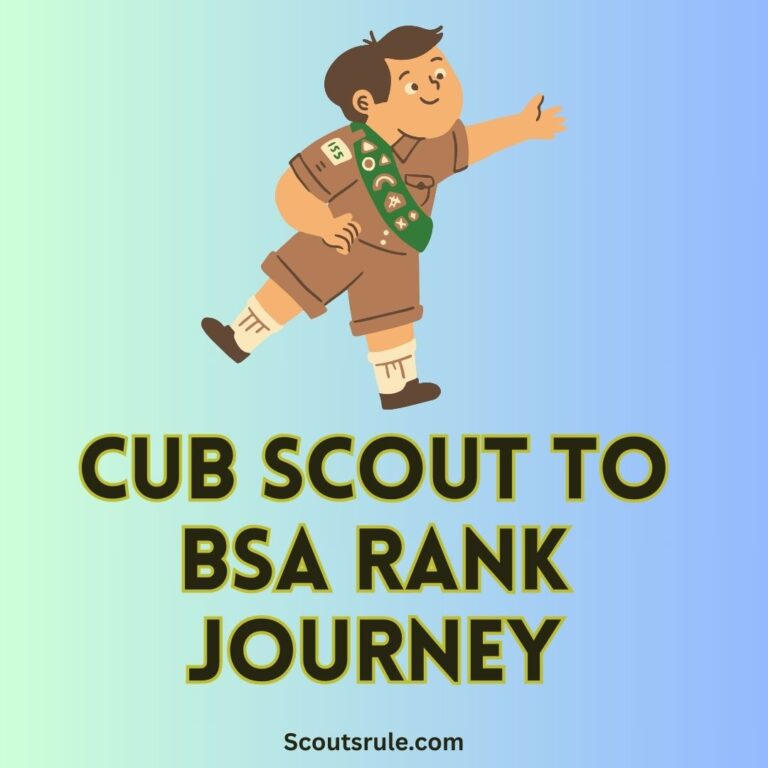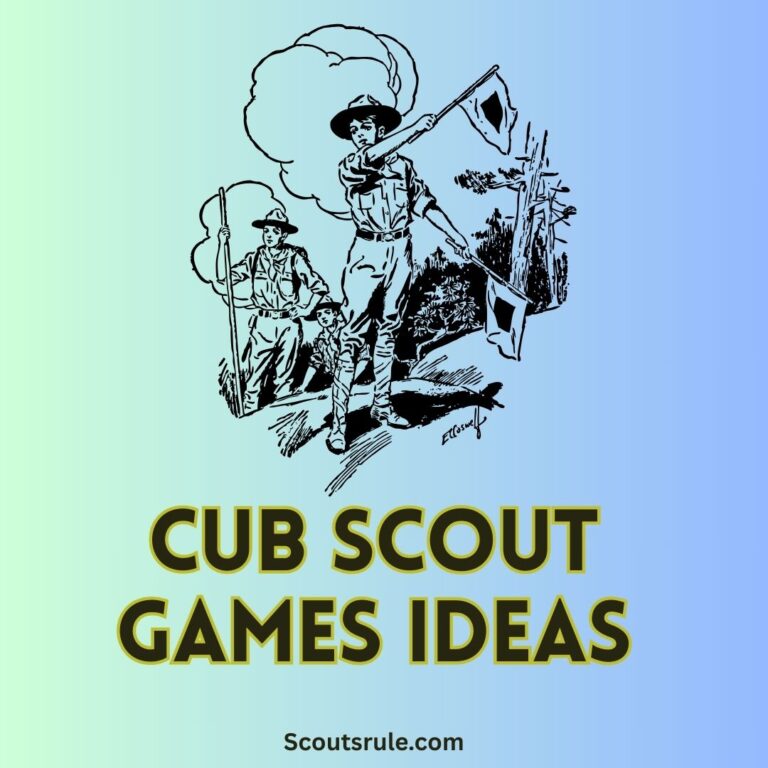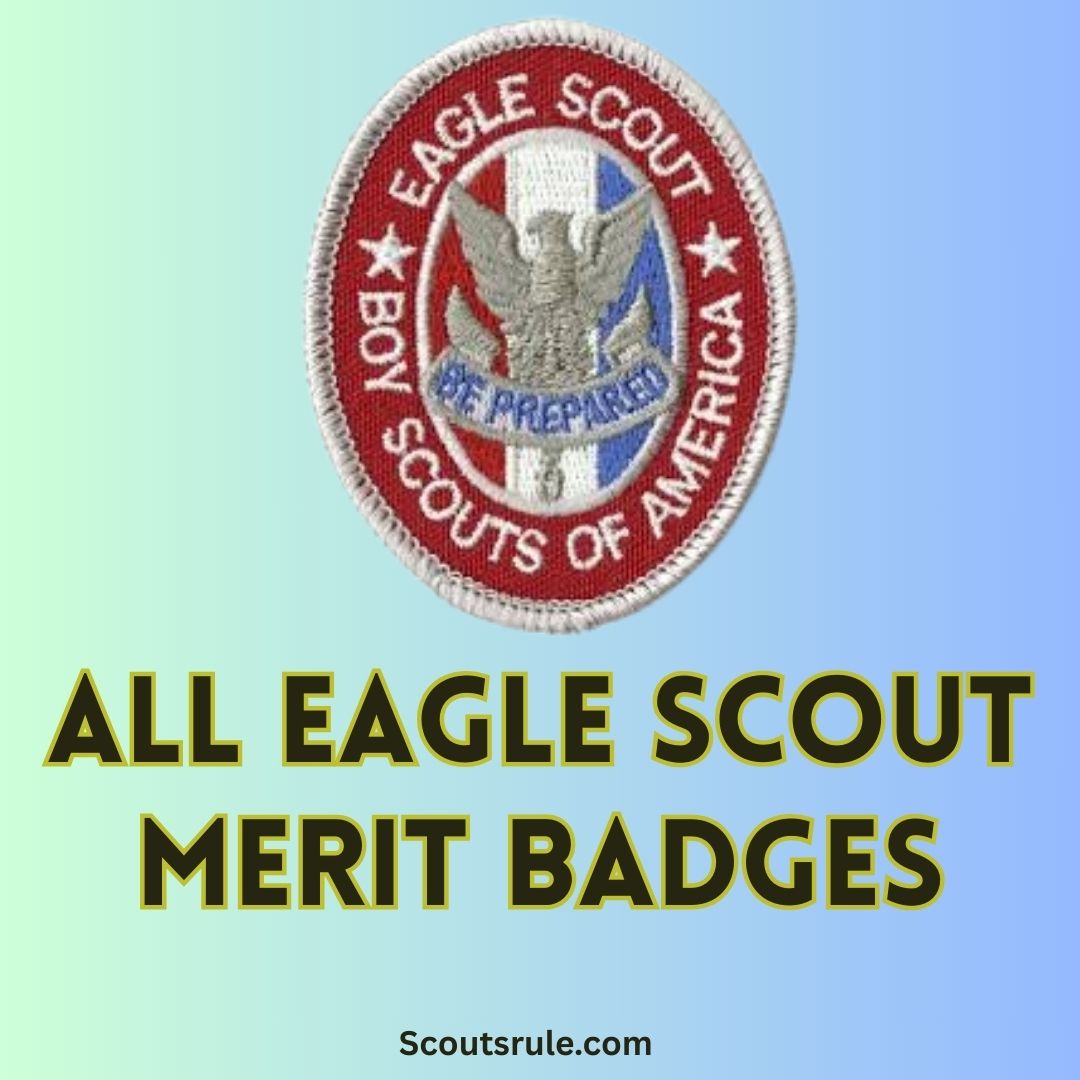
Earning Eagle Scout is one of the highest achievements in Scouting. To do so, Scouts must earn a total of 21 merit badges, 14 of which are specifically designated as Eagle-required. These 14 badges are carefully chosen to ensure that every Eagle Scout possesses a strong foundation in critical areas such as safety, citizenship, communications, outdoor skills, and personal management. They represent lessons and experiences that extend far beyond Scouting, preparing you for responsible citizenship, resourcefulness, and leadership in all walks of life.
The Eagle-required merit badges are divided into several categories, including health and safety, civic responsibility, personal skill development, and outdoor proficiency. Let’s explore each one, what it covers, and why it is essential for becoming a well-prepared leader.
Note: As requirements change over time, be sure to check the latest Scouts BSA Requirements book or visit the official Boy Scouts of America website for any updates.
Post Contents
- The Complete List of Eagle-Required Merit Badges
- 1. First Aid
- 2. Citizenship in the Community
- 3. Citizenship in the Nation
- 4. Citizenship in Society
- 5. Citizenship in the World
- 6. Communication
- 7. Cooking
- 8. Personal Fitness
- 9. Emergency Preparedness OR Lifesaving
- 10. Environmental Science OR Sustainability
- 11. Personal Management
- 12. Swimming OR Hiking OR Cycling
- 13. Camping
- 14. Family Life
- Conclusion
- Frequently Asked Questions (FAQs)
The Complete List of Eagle-Required Merit Badges
According to current requirements, you will need to earn the following 14 Eagle-required merit badges:
- First Aid
- Citizenship in the Community
- Citizenship in the Nation
- Citizenship in Society
- Citizenship in the World
- Communication
- Cooking
- Personal Fitness
- Emergency Preparedness OR Lifesaving
- Environmental Science OR Sustainability
- Personal Management
- Swimming OR Hiking OR Cycling
- Camping
- Family Life
Some badges offer alternatives in certain categories—for example, you may choose either Emergency Preparedness or Lifesaving, Environmental Science or Sustainability, and one of Swimming, Hiking, or Cycling. This flexibility allows you to tailor your Eagle journey according to your interests and abilities.
Eagle‐required merit badges, grouped by age and developmental levels, that serve as stepping stones along the Scouting journey toward becoming an Eagle Scout.
For Younger Scouts (Under 15):
At this stage, the focus is on learning fundamental life skills, outdoor proficiency, and basic self-reliance. Four Eagle‑required merit badges support this growth:
- First Aid: This badge teaches Scouts how to respond appropriately to emergencies. Topics include treating minor wounds, performing CPR, and managing common injuries. Learning First Aid builds confidence in handling unexpected situations and caring for others.
- Camping: The Camping badge introduces outdoor skills such as setting up a campsite, following safe practices in the wilderness, and practicing leave-no‐trace principles. It fosters an appreciation for nature and encourages planning and self-reliance during trips.
- Cooking: With the Cooking badge, Scouts learn meal planning, basic food preparation, and proper nutrition. By understanding the importance of varying techniques and safe food handling, they gain an essential life skill that promotes independence and resourcefulness.
- Swimming or Hiking or Cycling: Scouts choose one of these three activity options.
- Swimming emphasizes water safety, stroke technique, and endurance.
- Hiking focuses on navigation, trail etiquette, and developing proper equipment use on long journeys.
- Cycling builds skills in safe riding techniques, routine maintenance, and route planning. Each option promotes physical fitness and outdoor competence.
For Around 15 Years Old:
As scouts mature, the emphasis shifts to civic engagement, cultural awareness, and preparation for adult responsibilities. The following merit badges assist in this phase:
- Citizenship in the Community: This badge encourages Scouts to engage locally, understand community needs, and participate in service projects that benefit their neighborhoods. It lays a foundation for active citizenship.
- Citizenship in the Society: Focused on social awareness, this badge addresses the dynamics of diversity, cultural understanding, and ethical leadership. It inspires Scouts to be respectful, inclusive leaders.
- Citizenship in the Nation: This badge deepens a Scout’s understanding of national governance, historical evolution, and civic ideals that shape the country. It fosters patriotism and responsible participation at a national level.
- Citizenship in the World: This badge broadens personal perspective by examining global issues such as international relations, global economics, and worldwide environmental challenges. It underscores the importance of global cooperation.
- Emergency Preparedness or Lifesaving: Scouts choose one to learn lifesaving skills from either the emergency planning perspective—developing disaster response plans and assembling emergency kits—or water‐rescue skills and CPR through Lifesaving. Both are vital for community safety.
- Environmental Science or Sustainability: In this badge, Scouts study human impacts on the environment. They can focus on learning about ecosystems and pollution or on sustainable practices, such as conserving energy and reducing waste, instilling environmental stewardship.
For Older Scouts (Aged 15+):
At this more advanced level, attention turns to personal development, leadership, and effective communication—qualities essential for a future Eagle Scout:
- Personal Management: This badge covers budgeting, financial planning, time management, and decision-making, providing practical skills for adult independence.
- Personal Fitness: Focuses on creating sustainable fitness routines and understanding nutrition, reinforcing the importance of a healthy lifestyle.
- Family Life: Encourages exploration of family roles, responsibilities, and traditions, strengthening relationships.
- Communication: Develops effective speaking, writing, and listening skills essential for leadership and collaboration.
Each group of badges builds upon the previous one, ensuring that as you advance in age and experience, your skills, understanding, and passion for service continue to grow on your journey to Eagle Scout.
1. First Aid
Overview:
The First Aid merit badge teaches you how to effectively respond to medical emergencies. It covers topics like CPR, wound care, the treatment of fractures, and emergency preparedness measures for common injuries. The knowledge gained from First Aid is critical both in everyday life and during outdoor adventures.
Why It’s Important:
- It empowers you to help others in emergencies.
- It builds the foundation for a safe and healthy lifestyle.
- It teaches responsibility and ensures you’re prepared to act when someone is hurt.
2. Citizenship in the Community
Overview:
This badge emphasizes your role within your local community. You learn about local government, community service, and ways to participate in activities that improve your neighborhood. You might engage in a service project, study local laws, or discuss what makes a community thrive.
Why It’s Important:
- It fosters a sense of civic duty and service.
- It helps you understand the importance of contributing to your local area.
- It prepares you for leadership roles later in life by encouraging community involvement.
3. Citizenship in the Nation
Overview:
Citizenship in the Nation deepens your knowledge of how national government functions, the importance of participating in national civic life, and understanding national symbols and values. It may involve studying the Constitution, exploring the history of the nation, or visiting places of national significance.
Why It’s Important:
- It builds patriotism and national awareness.
- It informs you of your rights and responsibilities as a citizen.
- It connects you to the broader framework of your country’s governance and history.
4. Citizenship in Society
Overview:
With an emphasis on social and cultural understanding, this badge deals with concepts of diversity, ethical leadership, and interpersonal dynamics. It challenges you to think about how society is organized and the importance of respecting different cultures, beliefs, and lifestyles.
Why It’s Important:
- It promotes a respectful and inclusive attitude.
- It prepares you to be a thoughtful and proactive member of society.
- It encourages critical thinking about social issues and your role as an upstander.
5. Citizenship in the World
Overview:
Serving as a bridge between local and global citizenship, this badge requires you to understand the world’s political, economic, and cultural diversity. You examine issues on a global scale, such as environmental challenges, international cooperation, and global human rights.
Why It’s Important:
- It fosters an appreciation for different cultures and global interdependencies.
- It teaches you how international matters impact local communities.
- It encourages you to think beyond borders when it comes to problem solving and leadership.
6. Communication
Overview:
The Communication merit badge focuses on the vital skill of effective communication. It may involve public speaking, writing, or multimedia presentations. You learn how to articulate ideas clearly, listen effectively, and adapt your message for different audiences.
Why It’s Important:
- Communication is critical for effective leadership.
- It helps in resolving conflicts, persuading others, and working in a team.
- It’s essential in nearly every career and interpersonal relationship.
7. Cooking
Overview:
Cooking isn’t just about making food—it’s about nutrition, resourcefulness, and creativity. In the Cooking merit badge, you learn basic food preparation, meal planning, and the nutritional value of different foods. You might also explore different cooking techniques and the safe handling of food.
Why It’s Important:
- It promotes self-sufficiency and healthy living.
- It teaches practical skills for everyday life.
- It encourages creativity and teamwork, especially when cooking for a group.
8. Personal Fitness
Overview:
Earning the Personal Fitness merit badge means examining your own physical health and developing a regular fitness regimen. Topics include nutrition, exercise planning, and setting personal fitness goals. You might test your endurance, strength, and flexibility, all while learning how to track your progress and stay motivated.
Why It’s Important:
- It instills lifelong habits for maintaining health and well-being.
- It reinforces the importance of regular exercise and good nutrition.
- It builds the mental and physical discipline necessary for personal and professional success.
9. Emergency Preparedness OR Lifesaving
Overview:
You must choose between the Emergency Preparedness and Lifesaving merit badges as part of your Eagle requirements.
- Emergency Preparedness:
Focuses on preparing for natural disasters or emergencies, covering topics like creating evacuation plans, building emergency kits, and understanding crisis management. - Lifesaving:
Concentrates on water safety and rescue techniques, including swimming skills, CPR, and proper response to drowning emergencies.
Why It’s Important:
- Both badges emphasize practical skills that can save lives.
- They prepare you to respond confidently to emergencies.
- They also promote community service by equipping you with the knowledge to assist others.
10. Environmental Science OR Sustainability
Overview:
This category offers a choice between Environmental Science and Sustainability:
- Environmental Science:
Concentrates on understanding ecosystems, pollution, and the role of human activity in impacting the environment. - Sustainability:
Focuses on strategies for using resources responsibly, such as renewable energy, conservation practices, and reducing waste.
Why It’s Important:
- It cultivates environmental stewardship and responsible citizenship.
- It motivates you to think critically about resource management.
- It connects Scouting values with global challenges like climate change and pollution.
11. Personal Management
Overview:
Personal Management covers essential life skills such as budgeting, financial planning, and decision-making. You learn how to manage your time, money, and resources effectively. This merit badge emphasizes responsibility, organization, and planning.
Why It’s Important:
- It prepares you for future financial independence.
- It lays the groundwork for strong organizational and executive skills.
- It improves overall personal and professional efficiency.
12. Swimming OR Hiking OR Cycling
Overview:
For this requirement, you can choose one of three physical activity options:
- Swimming:
Focuses on water safety, stroke techniques, and endurance. - Hiking:
Emphasizes preparation for backcountry trails, navigation, and outdoor survival skills. - Cycling:
Involves safe riding techniques, maintenance of the bicycle, and route planning.
Why It’s Important:
- It promotes physical fitness and overall well-being.
- It provides practical outdoor experience.
- It tests your ability to plan, prepare, and execute a safe outdoor activity.
13. Camping
Overview:
The Camping merit badge immerses you in outdoor skills and wilderness survival. It covers topics such as:
- Setting up and maintaining a campsite
- Hazard recognition and navigation
- Food storage, camp sanitation, and environmental stewardship
Why It’s Important:
- It prepares you for extended trips into the wilderness.
- It builds self-reliance and practical survival skills.
- It instills respect for nature and promotes responsible outdoor behavior.
14. Family Life
Overview:
Family Life is designed to help you understand the role of family and develop positive family relationships. The badge involves reflecting on personal responsibilities, engaging in family activities, and discussing family traditions and values.
Why It’s Important:
- It emphasizes personal accountability and responsibilities within a family.
- It fosters communication, cooperation, and shared traditions.
- It builds a foundation for strong, supportive family relationships.
Conclusion
Earning these Eagle-required merit badges not only moves you toward the prestigious rank of Eagle Scout but also ensures that you graduate with a diverse skill set and a deep understanding of many aspects of life—from personal health and safety to civic responsibility and outdoor skills. Each badge is a building block in your journey, providing lessons that extend far beyond the world of Scouting. Embrace each challenge, learn from every experience, and use these skills to become a well-rounded, responsible citizen and future leader.
Frequently Asked Questions (FAQs)
General Eagle Merit Badge Questions
Q: What are the Eagle-required merit badges?
A: As of current guidelines, there are 14 required merit badges for Eagle Scout, including First Aid; Citizenship in the Community, Nation, Society, and World; Communication; Cooking; Personal Fitness; Emergency Preparedness OR Lifesaving; Environmental Science OR Sustainability; Personal Management; Swimming OR Hiking OR Cycling; Camping; and Family Life.
Q: How many merit badges do you need to earn to become an Eagle Scout?
A: You must earn a total of 21 merit badges, which include the 14 Eagle-required badges. The additional seven badges can be chosen from various other categories.
Q: Can I choose between two merit badges in some categories?
A: Yes. For example, you must choose either Emergency Preparedness or Lifesaving, Environmental Science or Sustainability, and one of Swimming, Hiking, or Cycling.
Badge-Specific Questions
Q: Why is First Aid a required merit badge?
A: First Aid is essential because learning how to respond to medical emergencies is vital for personal safety and for helping others during unforeseen situations.
Q: What is the focus of the Citizenship merit badges?
A: The Citizenship series—covering Community, Nation, Society, and World—focuses on local, national, and global responsibilities. They teach you about civic engagement, government, cultural diversity, and how to be an active and responsible citizen.
Q: What skills will I learn in Personal Management?
A: Personal Management provides practical skills in budgeting, time management, organization, and decision-making, helping you prepare for adult responsibilities.
Q: How do I choose between Swimming, Hiking, and Cycling?
A: Choose the one that best suits your interests and abilities. Each option tests your physical fitness and outdoor skills through different activities, whether it’s water safety, trail navigation, or road cycling.
Q: Why is the Camping merit badge so important?
A: Camping instills self-reliance, outdoor skills, and respect for nature while teaching you how to prepare and live responsibly in a wilderness setting.
Career and Future Perspectives
Q: Do these merit badges prepare me for a future career?
A: Absolutely. Beyond earning Eagle Scout, these badges help you build skills applicable in many careers—from healthcare (First Aid) and public service (Citizenship badges) to outdoor leadership (Camping, Personal Fitness) and beyond.
Q: How should I approach learning these merit badges?
A: Focus on hands-on experience, reflection, and understanding the underlying principles behind each activity. Engage with your counselors, practice the skills, and try to connect what you learn with your daily life and future aspirations.

Hi, Robin here, A former lead Scout and here I share my inspiring stories about USA Scouts, leadership, adventure, how to guides and more.

